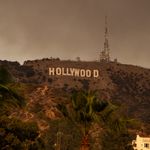After being caught by surprise by President Mubarak’s refusal to step down last night, and likely surprised again by Mubarak’s sudden reversal this afternoon, President Obama gave the kind of speech that his remarks hinted at yesterday in Michigan. Obama opened by making clear that Egypt’s peaceful revolution was a moment for the history books, setting the protesters’ cause along the “arc of justice” that extended from Ghandi to Martin Luther King Jr. and now to Tahrir Square. The president noted that Mubarak’s departure was merely the beginning of Egypt’s transition. “I am sure there will be difficult days ahead and many questions remain unanswered,” he said, adding, “But I am confident that the people of Egypt can find the answers and do so peacefully, constructively, and in the spirit of unity that has defined these last few weeks.” While pledging America’s continued support to Egypt, Obama also emphasized that this was a homegrown revolution, seeming to take a step back from U.S. involvement in Egypt, but stopping short of acknowledging ties with Mubarak’s regime. “We stand ready to provide whatever assistance is necessary — and asked for — to pursue a credible transition to a democracy.”
The president gave an approving nod to the Egyptian military’s responsiveness to the protesters, but cautioned that the army’s level of responsibility continues, with input from all parties, as it assumes Mubarak’s mantle until September’s elections:
Obama has addressed the situation in Egypt with caution over the past few weeks, advocating primarily for an “orderly transition.” But these are the types of events that bring out the rhetorical eloquence that so moved voters during his campaign. And his brief address here was no different. He quoted an anonymous protester who said, “‘Most people have discovered in the last few days that they are worth something,’” adding, “This is the power of human dignity and it can never be denied.” Concluding, the president again referenced a quote from King: “‘There’s something in the soul that cries out for freedom.’” He added, “Those were the cries that came from Tahrir Square and the entire world has taken note.”





























